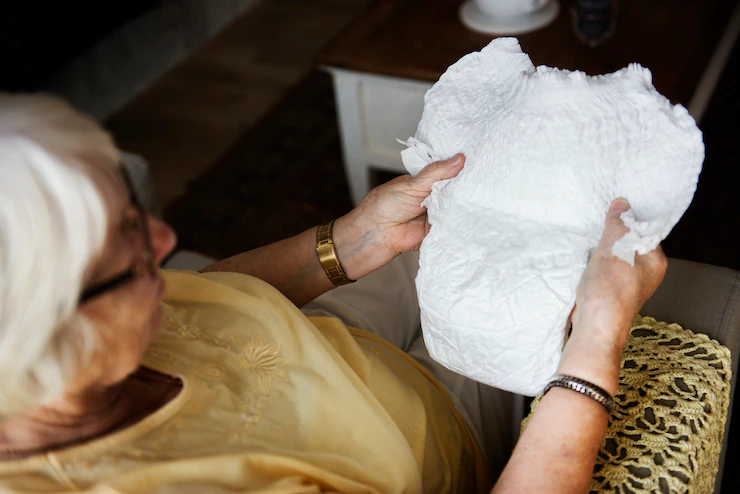Unlike younger people who typically report burning sensations or frequent urination, older adults may show more vague or non-specific symptoms. That’s why recognizing early warning signs of urinary tract infections in seniors is both a skill and a responsibility.
As we age, our immune systems become less responsive, and this makes seniors more vulnerable to infections. Among the most common and potentially serious infections affecting older adults is the urinary tract infection (UTI). Understanding the early warning signs of urinary tract infections in seniors is essential for timely treatment and prevention of complications.
In this comprehensive guide, you’ll learn how to recognize the subtle and often overlooked symptoms of UTIs in older adults, why they differ from symptoms in younger individuals, and what proactive steps caregivers and family members can take.

Why Are Seniors at Higher Risk for UTIs?
Several age-related changes make seniors more susceptible to UTIs:
- Weakened immune system reduces the ability to fight off bacteria.
- Incomplete bladder emptying due to conditions like enlarged prostate or weakened bladder muscles.
- Use of catheters in hospitals or care facilities.
- Mobility issues and poor hygiene in some cases.
- Chronic illnesses like diabetes.
Understanding these underlying factors is the first step in prevention and early detection.
Recognizing the Early Warning Signs of Urinary Tract Infections in Seniors
Here are the key symptoms:
Sudden Confusion or Delirium
A previously sharp and alert senior may suddenly appear confused, disoriented, or unusually drowsy. This is one of the most overlooked early signs.
📝 Pro tip: Confusion related to UTIs is often misdiagnosed as dementia or Alzheimer’s progression. If symptoms appear suddenly, a UTI test is essential.
Low-Grade Fever or Chills
Seniors may not spike high fevers. A slight increase in temperature or unexplained chills can be a red flag.
Changes in Urination Patterns
Changes in urinary habits often point directly to a UTI.
- Strong-smelling or cloudy urine
- Blood in urine
- Complaints of pain (though many seniors don’t report this)
- Frequent urge to urinate
Even a decline in the ability to get to the bathroom in time can be linked to infection.
Loss of Appetite or Nausea
UTIs can suppress appetite and cause digestive upset:
- Refusal to eat
- Nausea or occasional vomiting
- Complaints of stomach pain
Always observe appetite changes in the elderly—especially when paired with other symptoms.
Fatigue or Behavioral Changes
Fatigue, mood swings, or irritability can signal a brewing infection. Some seniors may become withdrawn or overly aggressive.
Look out for:
- Sudden fatigue or weakness
- Loss of interest in regular activities
- Changes in speech or body language
Why Early Detection of UTIs in Seniors Matters
The earlier a UTI is identified in a senior, the easier it is to treat and the less likely it is to lead to complications such as:
- Kidney infections
- Sepsis (a life-threatening infection spread through the blood)
- Increased risk of falls due to dizziness or weakness
- Cognitive decline
Early action can significantly improve recovery and reduce hospitalization risks.

How Caregivers Can Take Action
Caregivers play a vital role in catching UTIs early. Here’s what you can do:
- Monitor behavior daily — small changes can be huge indicators.
- Encourage hydration — dehydration increases UTI risk.
- Promote hygiene — proper cleaning prevents bacteria buildup.
- Ensure regular toileting — especially for those with dementia.
- Keep a UTI symptom checklist — refer back during medical visits.
Are you ready to ensure that your loved ones receive the best care at home? Stay informed and join our community support forum to receive the latest tips on elder care. https://www.formyparents
Disclaimer: This blog post is for informational purposes only and does not constitute medical advice. Always consult a qualified healthcare professional for diagnosis, treatment, or concerns related to urinary tract infections or any other medical condition.
More Related Posts:
- How to Make Long-Term Care Decisions with Confidence
- Senior Dental Health: Key to Longevity and Well-being
- Senior Health Wearables: Top 10 Devices for 2025
- CDC – Urinary Tract Infections
- NHS – UTIs in Older People
Always, to my BELOVED PARENTS:
Everyday-
I think of you
I miss you
I Love You ❤️

Recent Comments